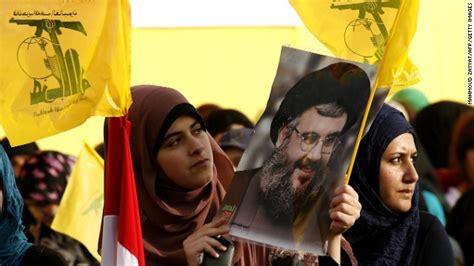
Why the Arab Street Is Celebrating Israel’s Killing of Hezbollah Chief Nasrallah | Opinion
If you look at the comments on social media since it was announced that Hezbollah Secretary General Hassan Nasrallah was targeted and possibly killed in an Israeli air raid on his compound in Beirut, you will find that the overwhelming majority of people posting from Arab and Islamic countries are positive. Many go beyond that to outward gloating. There are videos of people handing out sweets in the streets, and an overwhelming sense of joy at what looks like the end of Hezbollah as we know it, as Israel continues to target its commanders.
To those unfamiliar with the region, this may be surprising, especially given that this reaction is the exact opposite of what we saw during the 2006 war between Israel and Hezbollah, when mass demonstrations were held daily across Arab and Islamic countries, with protestors carrying pictures of Nasrallah and chanting slogans supporting him and declaring their allegiance to him.
What changed that turned support into hate and resentment?
Hezbollah is an ideological party based on the principle of Wilayat al-Faqih or Guardianship of the Jurist, which is the cornerstone of the Shiite doctrine. It demands the loyalty of its followers to the guardian jurist, who acts on behalf of heaven’s command. That person is Iran’s Supreme Leader, the Ayatollah Khomeini, and Hezbollah’s fealty to Khomeini is what pushed the party without hesitation to engage in civil wars in Syria, Iraq, and Yemen, and to intervene in the protests in Bahrain years ago. These interventions by Hezbollah were not against Israel but against the Muslim citizens in those countries, most of whom were engaged in revolts against tyrannical dictatorial regimes, who built their power off the bodies of their opponents.
Hezbollah’s support for criminal and corrupt regimes in Yemen, Syria, Iraq, and Iran has had a much stronger impact on the Arab and Islamic masses than Hezbollah’s attacks on Israel, which is why the assassination of Hassan Nasrallah is not an event worth shedding tears for most of these masses.
Hezbollah’s involvement in repressive actions in neighboring countries elevated strongman leaders who oppressed their fellow Muslims, which angered enough people that Israel was able to recruit a large base for espionage missions, one which undoubtedly helped in carrying out successive assassinations of Hezbollah leaders, the last but not least of which was the assassination of Nasrallah.
Even at home in Lebanon, Hezbollah is accused by Lebanese citizens (with the exception of the Shiite community) of being an armed militia that undermines and weakens the Lebanese state. This accusation has turned out to be true over the past years; Hezbollah took up arms against Saad Hariri’s Future Movement in 2008 and occupied buildings and facilities in Beirut in a blatant show of force. The group was also accused of being involved in the assassination of former Lebanese Prime Minister Rafik Hariri.
From the perspective of the overwhelming majority of Arab and Muslim peoples, Hezbollah is a destructive element that fuels sectarian conflicts and supports authoritarian regimes so long as these regimes share a common sectarian affiliation with Hezbollah and the Supreme Leader of Iran wishes to support them.
Of course Muslims across the region are celebrating the end of the Hezbollah group as we know it.
So what comes next?
Nasrallah’s personality was one of the factors that supported popular support for Hezbollah in Lebanon. A charismatic leader seen as an intellectual and spiritual guide, Nasrallah cultivated a cult of personality that solidified what support Hezbollah could count on. Without Nasrallah as the leader, many may now reconsider their support and the price they have paid for being and Iranian proxy.
Indeed, Israel no doubt knew before carrying out the assassination of Nasrallah that it would not provoke popular protests in its neighboring countries and thus would not generate pressure on the moderate Muslim countries surrounding it to retaliate.
Israel should seize the moment to generate a lasting peaceful solution to its conflict with the Palestinians. A just solution to the Palestinian issue should be based on Security Council resolutions and the establishment of a civil Palestinian state within the 1967 borders. Both the new Palestinian state and Israel must adopt a constitution that emphasizes civil rights and secularism and prohibits religious extremism and the use of violence.
Now is the moment. There is an opportunity to be made out of the current crisis, for the parties in conflict in the Middle East to come up with political initiatives which exclude extremism and promote peace, diversity, and coexistence.
Source » newsweek.com





